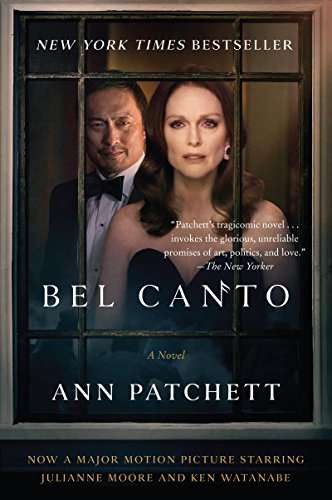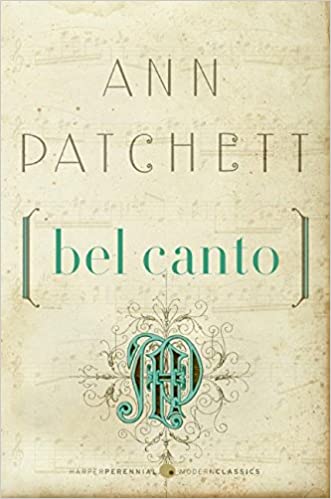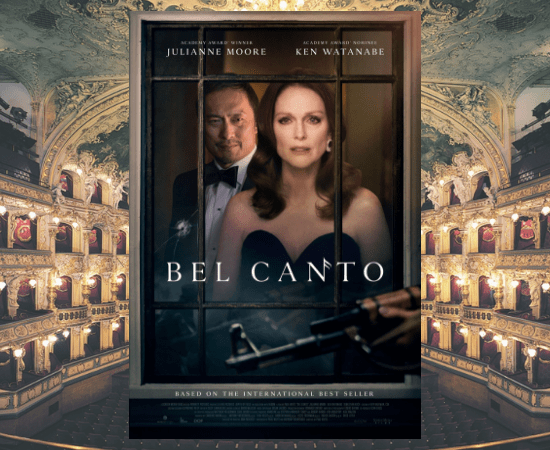Bel Canto by Ann Patchett
In Italian, “bel canto” means “beautiful singing.” Readers of Ann Patchett’s 2001 novel, Bel Canto (Harper Perennial) could only imagine the music that is so crucial to its plot. No longer. The romantic thriller now has an operatic soundtrack of classic arias. The new movie version, in wide release Sept. 14, stars Julianne Moore as world-renowned opera singer Roxane Coss, with a voice supplied by world-renowned opera singer Renee Fleming.
And what an operatic plot it is. A powerful Japanese industrialist has been invited to a birthday celebration in an unnamed South American country. Because the country’s government wants him to build a large manufacturing plant there, and because he is a lover of opera, he has been lured to the gala with the promise of a performance by his favorite singer.
As the book opens, lyric soprano Coss is receiving a standing ovation from the opulent crowd. Suddenly, the lights go out and a scruffy band of armed terrorists appears after crawling through the mansion’s air conditioning ducts.
The radicals had expected their country’s president to be present. He would have been a valuable bargaining chip to trade for their demands to release all political prisoners. The president, however, had excused himself at the last moment, blaming “important matters beyond my control.” He was at home watching his favorite telenovela.
Instead, the radicals must make do with a famous opera singer and various international dignitaries, having released all other women, the servants, and the old or infirm. As the month-long crisis builds to its disastrous end, terrorists and hostages bond, love affairs blossom, struggles become allegories, and the caged bird sings.
Ken Watanabe, famous for his samurai roles, portrays the Japanese business mogul Katsumi Hosokawa. Christopher Lambert (“Highlander”), in real life the son of a diplomat, plays Simon Thibault, the French ambassador to Peru, and German actor Sebastian Koch portrays Messmer, the Red Cross negotiator. “Bel Canto” is directed by Paul Weitz, who won a Golden Globe for his television series, “Mozart in the Jungle,” a comedy-drama about classical musicians in New York.
Patchett based her novel on real events, beginning to write as the world watched what became known as the Peruvian embassy crisis. In December, 1996, a small group of terrorists stormed the residence of the Japanese ambassador in Peru and captured a large dinner party celebrating the birthday of the Japanese emperor. The terrorists, members of the Tupac Amaru Revolutionary Movement, planned to trade their hostages for imprisoned compatriots.
Patchett noted the operatic qualities of the unfolding drama, and wrote the novel with an omniscient third-person narrator, creating a cinematic story with an intricate plot told from various viewpoints.
Adding an opera singer to the mix allowed her to wax poetic about voice: “It was as if the voice came from the center part of the earth and by the sheer effort and diligence of her will she had pulled it up through the dirt and rock and through the floorboards of the house, up into her feet, where it pulled through her, reaching, lifting, warmed by her, and then out of the white lily of her throat and straight to God in heaven.”
It’s been an auspicious journey for Patchett’s well-received novel. Named to several best-books-of-the-year lists, in 2003 it won the Orange Fiction Prize and the Pen/Faulkner Award. Previous plans for a Broadway musical failed, but in 2015, an opera version premiered at the Lyric Opera of Chicago.
Bel Canto is now available to purchase.
Buy this Book!
Amazon



